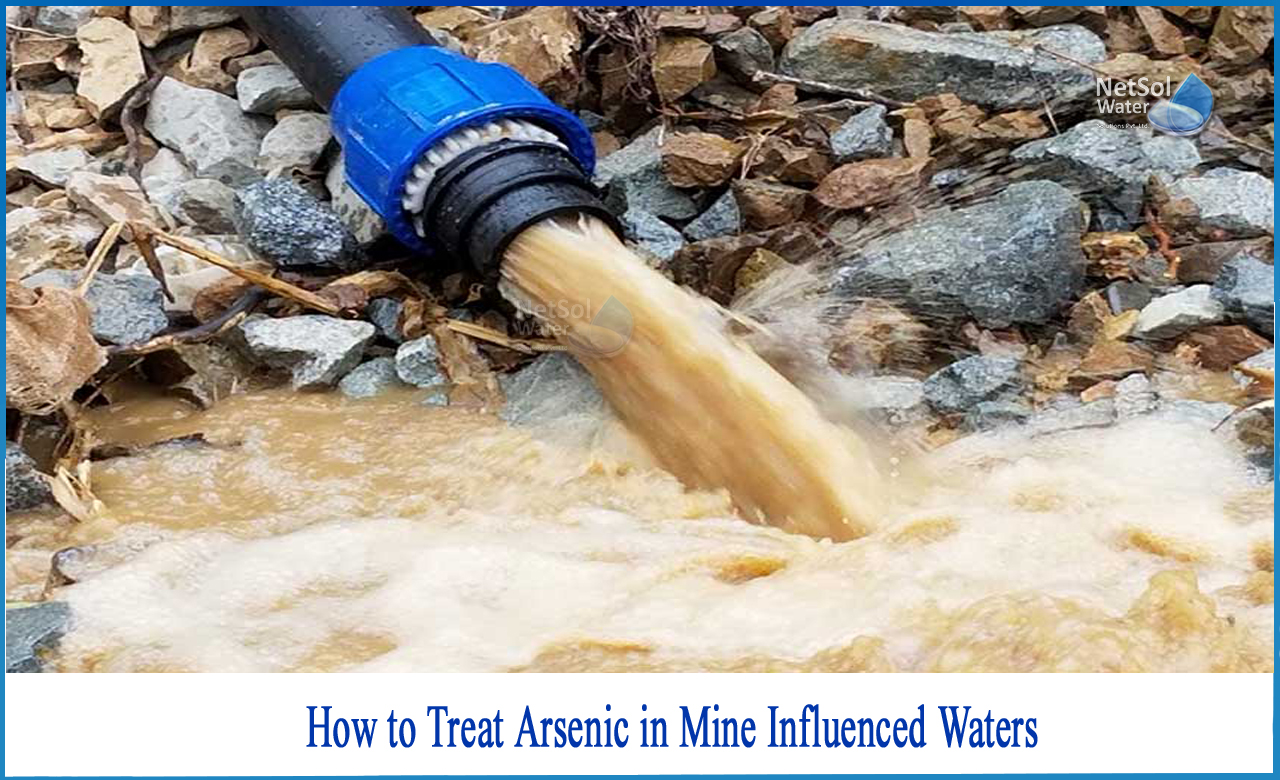How is arsenic harmful?
The effects of arsenic on our bodies are not fully understood!
Long-term exposure to low levels of inorganic arsenic by drinking water is known to cause health problems in humans: cancer, skin thickening, discoloration, nerve effects, high blood pressure, heart disease, numbness and some disorders.
Short-term exposure to very high concentrations of arsenic can cause abdominal pain, nausea, vomiting, diarrhoea, headaches, weakness and even death.
Some evidences also suggest that long-term exposure to low levels of arsenic (≥0.005 milligrams/litre) is associated with drinking water and can lead to lower IQ scores in children.
Talk to your doctor if you have any concerns about possible health problems related to arsenic in your water. A urine test will show if you have been exposed to the level of arsenic you are worried about.
Wastewater from mines
It is no exaggeration to say that wastewater from mines will need to be treated for years to come.
According to the International Organizing Committee of the World Mining Council, in 2016, 167 countries around the world produced a total of 16.9 billion tons of minerals, from aluminium to the runoff of zircon rocks. Acid rock drainage can result from all types of drilling operations, including road construction. However, many operations are undoubtedly associated with certain environmental impacts on the world's waters.
Acidic rock spills or acid mine spills need to be treated as they, if left untreated, will not allow aquatic organisms to inhabit water.
Impurities such as arsenic and selenium can occur in both acidic mine water and water affected by neutral pH mines, depending on local conditions. In either case, these two pollutants also need to be treated.
Why do we need to treat water containing arsenic?
Arsenic is a naturally occurring metalloid in many minerals, especially sulphur-containing minerals, and is also responsible for the outflow of acid rocks. Unfortunately, arsenic is a common groundwater pollutant. Arsenic-containing water and wastewater are toxic to animals and ingestors and should be treated.
To make water containing arsenic safe for humans and the environment, arsenic levels in drinking water should be 0.010 milligrams (mg / L) or less per litre.
Water treatment of arsenic
There are various technologies for treating wastewater in which pollutants are suspended and dissolved including arsenic from mines. These can be precipitation and/or filtration techniques.
Filtration technology is commonly used to treat water containing dissolved chemicals and minerals. In a filtration system, water passes through a filter medium that traps dirt particles. These systems include medium filtration or size exclusion-based separation (such as ultra-filtration). Dissolved contaminants can also be treated using techniques such as nanofiltration and reverse osmosis.
Netsol offers sedimentation and filtration solutions for mineral applications around the world, offering everything from specialty equipment. We have the expertise to provide cost-effective and reliable custom solutions. We believe in saving water and utilizing wastewater for different agricultural or irrigational purposes.
Netsol Water is Greater Noida-based leading water & wastewater treatment plant manufacturer. We are industry's most demanding company based on client review and work quality. We are known as best commercial RO plant manufacturers, industrial RO plant manufacturer, sewage treatment plant manufacturer, Water Softener Plant Manufacturers and effluent treatment plant manufacturers. Apart from this 24x7 customer support is our USP. Call on +91-9650608473, or write us at enquiry@netsolwater.com for any support, inquiry or product-purchase related query.



